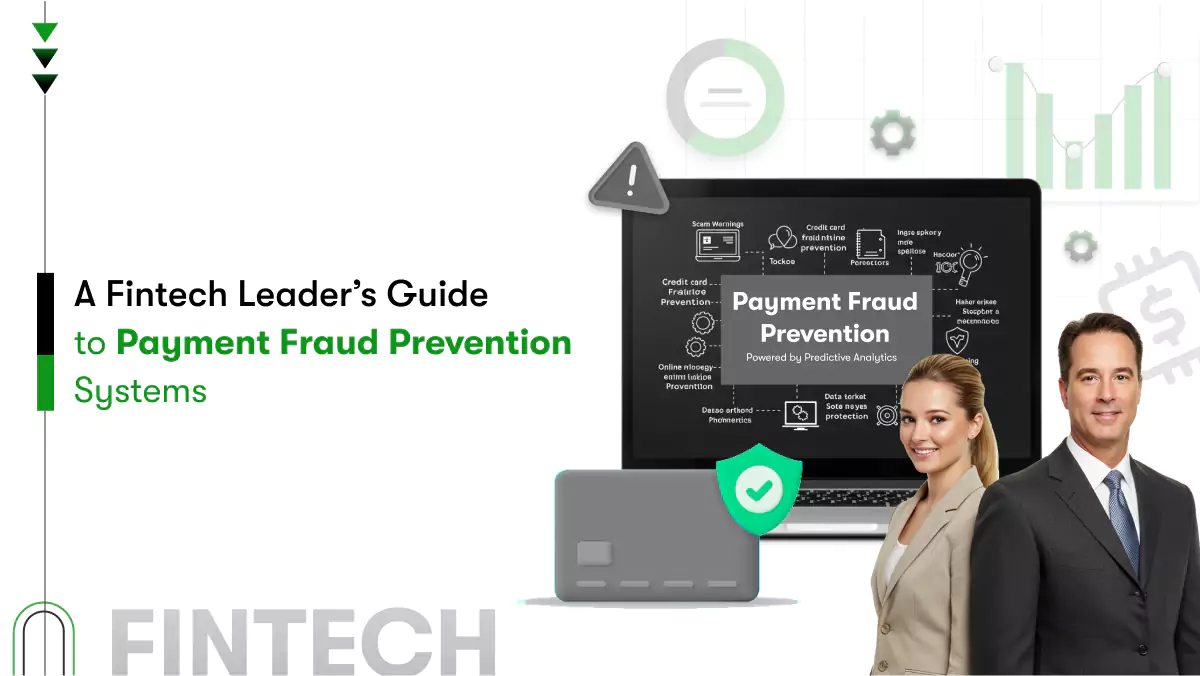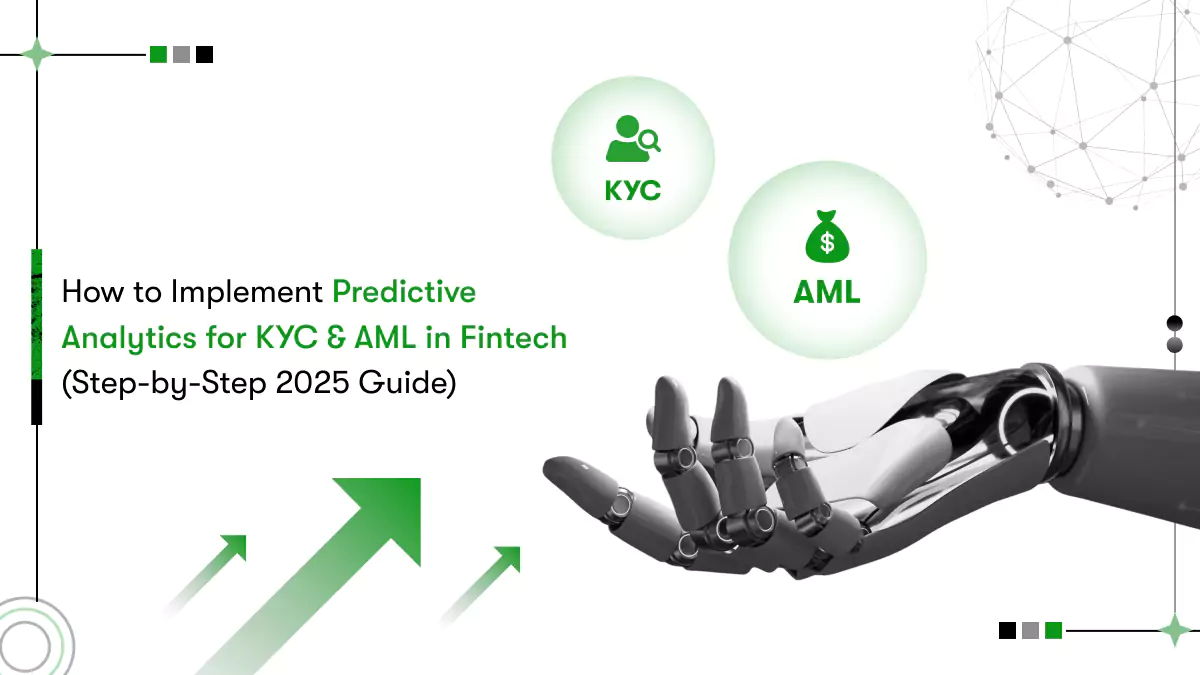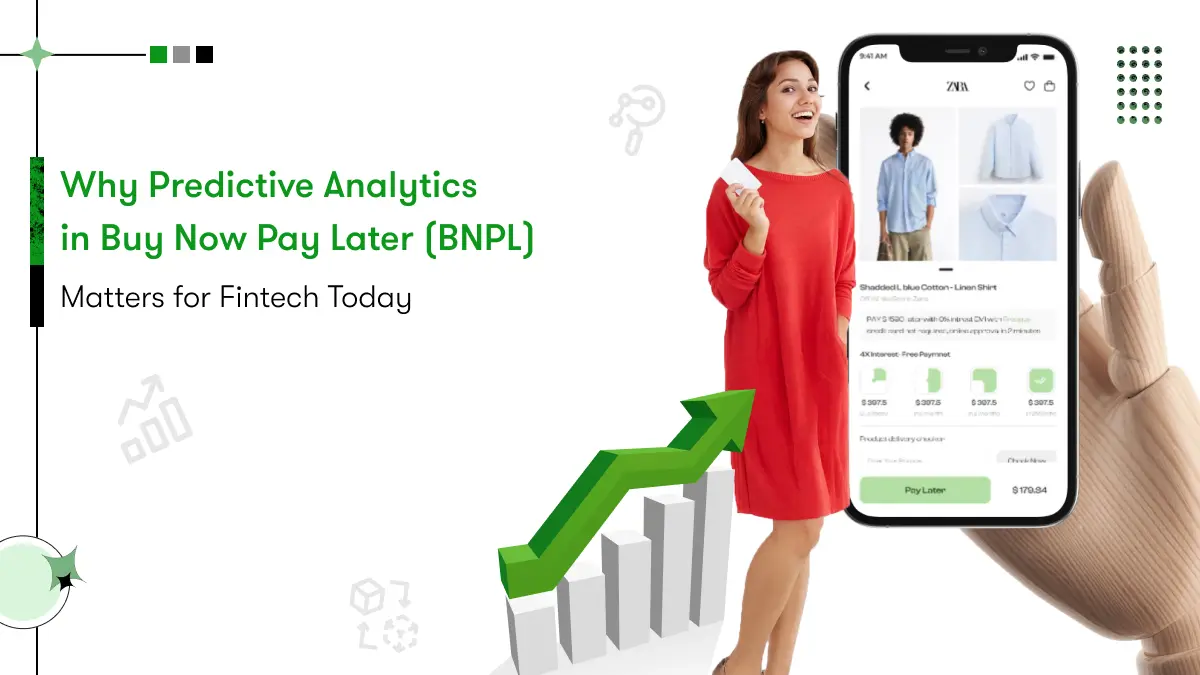Financial firms relying on outdated legacy systems often struggle to scale their services. On the contrary, companies that leverage technology and transform into FinTech not only scale as they grow but also become market leaders and attract loyal customers. Wealth management software is one of the Finance technology solutions that empowers you to provide real-time portfolio reporting, enables better investment decisions, and much more.
A cutting-edge wealth management software can easily be integrated into an existing financial ecosystem. Unifying data across all systems, it automates portfolio management, investment analysis, financial planning, and even client relations management. We can comprehend the potential of the wealth management software market from its market prediction according to Grand View Research reports,
The global wealth management software market is growing at a CAGR of 13.9% from 2023 to 2030 and is projected to reach USD 12.07 billion by 2030.
So, how are you going to reap the benefits from this growing market? It’s okay if you haven’t figured it out yet. Let this guide be your compass to navigate wealth management software development from start to finish.
What is Wealth Management Software?
Wealth Management Software is a technology solution that simplifies financial assets and investments management. Developing a cutting-edge wealth management system allows financial advisors, asset managers, and finance management firms to manage their customers’ portfolios efficiently, analyze investments, better client relationships, maintain compliance, and more.
Furthermore, financial firms can derive data-driven analytics using big data and AI/ML technologies in wealth management software development. This Data analytics further helps them understand their customers’ needs, recommend suitable portfolio allocations, and provide smart solutions. All while reducing the risk factors.
For example, Addepar is a digital platform that empowers wealth management professionals with data aggregation, portfolio analytics, client communications, and more. Serving 1000+ firms, Addepar has exceeded $5 trillion of client assets managed. But, why has wealth management software become so important? Let’s find out!
Why Wealth Management Software is Important Today?
Having a wealth management system is crucial in the complex financial world of today. A wealth management system is a must for any financial institution in order to keep up with the rapidly evolving digital landscape and differentiate your business in this cut-throat industry.
Wealth management software has become increasingly important in today’s complex financial landscape. Here are some key reasons why:

1. Enhanced Efficiency and Automation:
- Wealth management software automates many manual tasks, such as portfolio rebalancing, transaction processing, and reporting. This gives the financial advisors time to focus more on the important tasks, making more strategic activities, such as client relationship management and investment research.
2. Improved Data-Driven Decision Making:
- Wealth management software helps to get real-time data analysis, and based on that analysis, you can make decisions. By using predictive models for investment, advisors can make more informed choices that align with real-time stock market trends, client risk tolerance, and their financial goals.
3. Personalized Client Experiences:
- Wealth management software can be used to create personalized client portals. These portals allow the clients to access their portfolios, track performance, and communicate with their advisors securely. This can lead to a more positive and engaged client experience. When the client gets transparency and good experience it automatically makes the relationship stronger between the firm and clients. Also, it helps to create a loyal client base.
4. Scalability and Cost Reduction:
- Wealth management software can help firms scale their operations and reach a wider range of clients. This is because the software can automate many tasks and streamline workflows. Additionally, the software can help firms reduce costs by eliminating the need for manual data entry and other time-consuming tasks.
5. Integration with Other Fintech Tools:
- Wealth management software can be integrated with other fintech tools, such as CRM systems and trading platforms. This can create a more seamless and efficient experience for both advisors and clients.
Overall, wealth management software plays an increasingly important role in the financial services industry. By automating tasks, providing data-driven insights, and personalizing the client experience, wealth management software helps firms improve their efficiency, reduce costs, and grow their business.
Decoding the Wealthscape: A Market Analysis of Wealth Management Software
The world of wealth management is undergoing a drastic shift. Those days of dusty binders and phone calls are gone, now the future is digital, data-driven, and powered by the magic of wealth management software. But what exactly does the data tell us about this rapidly growing market?
Let’s have a look at what data-driven insights provide and uncover the secrets of this profitable landscape:
- Exponential Growth: By 2027, assets under management are projected to grow at a compound annual growth rate (CAGR) of 5.90%, translating into a market volume of US$155.10 trillion. (Source: Statista)
- Digital Revolution: The rise of high-net-worth individuals (HNWIs) and their insatiable appetite for digital solutions is fueling the demand for wealth management software. By 2025, the global HNWI population is expected to cross 17.7 million, with a collective wealth of USD 53.4 trillion. (Source: Capgemini)
- Robo-Advisor: The robo-advisor segment is expected to be the fastest-growing, driven by its affordability and accessibility. These AI-powered platforms cater to a wider range of clients, democratizing wealth management and making it more inclusive. (Source: MarketsandMarkets)
This stock market analysis isn’t just about cold, hard data. It’s about understanding the human stories behind the numbers, the aspirations of financial firms and startups, and the evolving needs of their clients. By weaving these narratives into your B2B communication, you can create content that resonates, informs, and inspires action.
Must-Have Features for Wealth Management Software: What Clients Demand
In the cutthroat world of wealth management, understanding your audience’s needs is the golden key to unlocking success. But what do these discerning clients, your potential partners in financial prosperity, truly crave in a wealth management software solution? Let’s delve into their desires:
Empower Clients by offering Personalization in Wealth Management Software:
- Automation and Efficiency: Reduce manual tasks, streamline workflows, and improve operational efficiency.
- Data-Driven Insights: Leverage data analytics to personalize client experiences, make informed investment decisions, and manage risk effectively.
- Client Engagement: Offer secure and personalized client portals, provide real-time portfolio updates, and enable seamless communication.
- Scalability and Flexibility: Accommodate growing client bases and adapt to changing market needs.
- Regulatory Compliance: Ensure adherence to complex financial regulations.
Implement Data-Driven Decision Making Features in Wealth Management Software:

- Artificial Intelligence (AI)-powered solutions: Personalized investment recommendations, automated portfolio rebalancing, and fraud detection.
- Alternative Investment Options: Access to private equity, hedge funds, and real estate investments.
- Sustainable Investing: Tools for identifying and investing in ESG-focused assets.
- Gamified experiences: Engaging and interactive platforms to encourage client engagement.
- Open Architecture Platforms: Integration with third-party fintech tools and data providers for greater customization.
Remember, the wealth management software market is constantly evolving, and players need to stay ahead of the curve by anticipating and addressing the evolving needs and wants of their target audience.
Read Also: AI in Wealth Management: A Deep Dive into Smart Financial Solutions
Data-Driven Mastery: How a Cloud-Based Platform Conquered Portfolio Complexity
BlackRock Aladdin Wealth Management Software:
BlackRock is one of the world’s largest and most well-known investment management firms. Aladdin provides a comprehensive suite of tools for portfolio management, risk analysis, trading, and operations. It enables investment professionals to manage their portfolios more efficiently, assess risks, and make informed investment decisions.
But their journey wasn’t without its bumps. Let’s explore the challenges BlackRock faced, their innovative solutions, and the key features that catapulted them to success:
BlackRock Aladdin: Identifying the Target Audience.
Large financial institutions like banks, wealth management firms, and insurance companies are the target audience of BlackRock Aladdin.
The Challenge: Silos and Scalability Strangles Growth
BlackRock identified the challenge of managing complex portfolios for a vast global client base, requiring data integration, risk analysis, and efficient portfolio construction. They noticed existing systems were siloed and lacked the scalability needed for future growth.
The Solution: Aladdin Wealth – A Symphony of Data, Risk, and Automation
BlackRock developed Aladdin Wealth Management, a cloud-based platform. Aladdin Wealth streamlines data integration, offers advanced risk analysis tools, and automates portfolio construction based on client goals and risk tolerance.
Key Features Driving BlackRock’s Success:
- Data Integration Powerhouse: Aladdin Wealth breaks down data silos, seamlessly integrating information from internal systems, external markets, and client portfolios. This unified view empowers you to make informed decisions with a clear picture of the financial landscape.
- Advanced Risk Analysis Arsenal: It eliminates the guesswork. Aladdin Wealth’s advanced risk analytics tools provide granular insights into potential pitfalls and opportunities, allowing you to tailor portfolios for optimal returns within client risk tolerances.
- Portfolio Construction Automation: Aladdin Wealth automates portfolio construction based on client goals, risk parameters, and market conditions. This frees up the time to focus on strategic analysis and client relationships.
- Scalability for Unstoppable Growth: Aladdin Wealth transcends borders, seamlessly managing portfolios across diverse regions and asset classes. This global reach allows capitalization on opportunities across the world, diversifying your offerings and maximizing potential returns.
BlackRock’s story inspires financial institutions facing portfolio management challenges to build wealth management software. By embracing innovative solutions like Aladdin Wealth, you too can unlock the power of data, conquer complexity, and propel your business to new heights.

Beyond the Basics: Advanced Features for Next-Level Wealth Management Software
Features built on cutting-edge technologies are key for an innovative wealth management platform to stand out. Let’s have a glimpse into such advanced features along with their technical aspects:
1. AI-Powered Insights and Automation:
- Predictive Analytics: Leverage machine learning to predict market trends, identify investment opportunities, and forecast client behavior.
- Automated Portfolio Management: Utilize AI algorithms to dynamically adjust portfolios based on real-time market data, risk tolerance, and client goals.
- Personalized Investment Recommendations: Employ AI to generate personalized investment suggestions tailored to individual client needs and preferences.
Which trending technologies offer both functionality and data security?
Trending Technology Stack:
- TensorFlow, scikit-learn, cloud computing platforms (AWS, Azure, GCP)
Security Solutions Methods To Keep the Data Safe:
- Data encryption, access controls, penetration testing, vulnerability management systems
Emerging Technologies Enhancing Personalized Investment Experiences:
- Explainable AI, natural language processing (NLP) for personalized communication, blockchain for secure and transparent data management.
Read Also: How AI Will Shape the FinTech Industry?
2. Alternative Investment Options:
- Cryptocurrency Integration: Offer seamless buying, selling, and trading of cryptocurrencies within the platform.
- Real Estate Investment Trusts (REITs): Provide access to a diversified portfolio of real estate assets through REIT investments.
- Private Equity and Venture Capital: Facilitate investments in high-growth private companies for sophisticated clients.
Which trending technologies offer both functionality and data security?
Trending Technology Stack:
- APIs for integrating with cryptocurrency exchanges, real estate data providers, and private equity platforms.
Security Solutions To Keep the Data Safe:
- KYC/AML compliance, robust authentication and authorization protocols, data security measures for sensitive financial information.
Emerging Technologies Enhancing Personalized Investment Experiences:
- Tokenization for fractional ownership of real estate assets, blockchain-based platforms for secure and transparent private equity investments.
3. Enhanced Client Engagement and Communication:
- Personalized Goal Tracking and Reporting: Track progress toward individual goals with interactive dashboards and tailored reports.
- Virtual Reality (VR) and Augmented Reality (AR) Experiences: Use VR/AR to visualize investment portfolios and explore market trends in an immersive way.
- Gamification Elements: Incorporate gamification elements like badges, leaderboards, and challenges to motivate and engage clients.
Which trending technologies offer both functionality and data security?
Trending Technology Stack:
- Flutter for cross-platform app development, VR/AR development platforms, game engines, gamification APIs
Security Solutions To Keep the Data Safe:
- Data privacy measures, secure authentication for VR/AR experiences, robust backend infrastructure to handle gamification elements.
Emerging Technologies Enhancing Personalized Investment Experiences:
- Metaverse integration for virtual consultations and investment discussions, AI-powered chatbots for personalized financial advice.
4. Holistic Financial Planning and Wellness:
- Budgeting and Expense Tracking Tools: Integrate the budgeting tools and expense-tracking functionalities for comprehensive financial management.
- Debt Management and Repayment Plans: Offer personalized debt management strategies and automated repayment plans.
- Mental Health and Financial Wellness Resources: Provide access to resources and tools to promote financial well-being and emotional resilience.
Which trending technologies offer both functionality and data security?
Trending Technology Stack:
- Budgeting and expense tracking APIs, financial planning software integrations, mental health and wellness platforms.
Security Solutions To Keep the Data Safe:
- Data privacy measures for sensitive financial information, secure integration with third-party resources, robust compliance with healthcare regulations.
Emerging Technologies Enhancing Personalized Investment Experiences:
- AI-powered financial coaching, personalized mental health interventions tailored to financial stress, and gamified financial wellness programs.
These advanced features are not exhaustive, and the best combination will depend on your specific target audience and business goals. However, by exploring and implementing these cutting-edge functionalities, you can create truly innovative and differentiated wealth management software that empowers your clients and helps them achieve their financial aspirations.
Demystifying the Numbers: Cost Analysis and ROI for Wealth Management Software
Building wealth management software can be an exciting journey, but understanding the financial aspects is crucial. Let’s dive into the cost analysis and potential return on investment (ROI) to equip you with informed decision-making.
How Much Does It Cost To Develop Wealth Management Software?
It’s true that pinning down an exact cost is tricky without specific project details. However, we can explore a range depending on the scale and complexity you envision:
- Small-scale application development: For basic functionalities like onboarding, portfolio management, reporting, and initial integrations, expect a cost range of $30,000 to $100,000.
- Mid-scale application development: Adding features like robo-advisory capabilities, advanced analytics, risk assessment, and CRM integration pushes the cost into the $100,000 to $400,000 range.
- Large-scale application development: Going all-in with AI/ML algorithms, robust security measures, compliance frameworks, and high-performance infrastructure takes you beyond $400,000.
What are the Factors That Can Affect the Costing of Wealth Management Software:
Remember, these are just estimates. Various factors can impact the final cost, such as,
- Feature complexity: Intricate functionalities like AI-powered portfolio management naturally cost more than simpler features.
- Technology stack: Utilizing cutting-edge technologies like blockchain or VR/AR will influence the cost compared to standard technologies.
- Team location: Hiring developers from regions with lower hourly rates can reduce costs compared to employing teams in expensive locations.
- Development methodology: Agile development typically iterates, resulting in flexible costs, while waterfall methods have fixed costs upfront.
What would be the Return on Investment (ROI) of Wealth Management Software:
Now, the good news! While the initial investment might seem significant, the potential ROI for successful wealth management software is substantial:
- Increased Revenue: Attract new clients, retain existing ones, and upsell premium services, all leading to a direct boost in revenue.
- Reduced Costs: Automate manual tasks, streamline operations, and improve efficiency, lowering operational expenses.
- Enhanced Brand Image: Stand out with innovative features, offer superior client experiences, and strengthen your brand reputation.
- Competitive Advantage: Differentiate yourself from the competition, attract specific client segments, and gain a foothold in the market.
Fintech developers are required if you want to put these technology stacks and methods into action. Let’s explore more to learn where to go for the best fintech developers and what considerations to make while employing them.
Strategizing Success: Finding the Perfect Fintech Developers for Wealth Management Software Development
Developing a successful wealth management software requires more than just innovative features and a solid roadmap. To truly bring the vision into the real world, you need the right team of developers who understand the complexities of finance, the trends of technology, and the importance of user experience.
Why Hire Fintech Developers for Wealth Management Software Development?
Fintech developers aren’t just coders; they’re financial architects, building the digital frameworks that empower your clients to manage their wealth. Hiring them offers several advantages:
- Domain Expertise: The Fintech developers understand the nuances of financial data, algorithms, and risk management, ensuring your software operates accurately and reliably.
- Security Savvy: Data security is paramount in finance. Fintech developers are well-versed in best practices, protecting your clients’ sensitive information.
- User-Centric Mindset: They know how to translate financial complexities into intuitive and engaging interfaces, making your software user-friendly and accessible.
- Cost-Effectiveness: Compared to outsourcing or generic software solutions, building your own platform with a dedicated team can be more cost-effective in the long run.
Creating a strong team is the key to success. Collaborate with companies that made it possible to hire their developers for specific projects. Here Kody Technolab comes into the picture. We partner with you to understand your vision, navigate regulations, and build a secure, scalable platform that fuels your long-term success. We offer a team of skilled fintech developers that you may engage to develop your wealth management application.
In a Nutshell:
Whether you’re a startup team seeking streamlined tools or a seasoned firm aiming for advanced analytics, the key is finding the solution that best addresses your client’s needs and empowers you to manage their assets effectively. Once you map priorities, you’ll be well-equipped to choose a solution that empowers your team to deliver exceptional financial guidance.
Contact Kody Technolab today and let’s embark on this exciting journey together, building the perfect wealth management software that empowers your clients, drives your business growth, and redefines the future of mobile investing.












 Contact Information
Contact Information